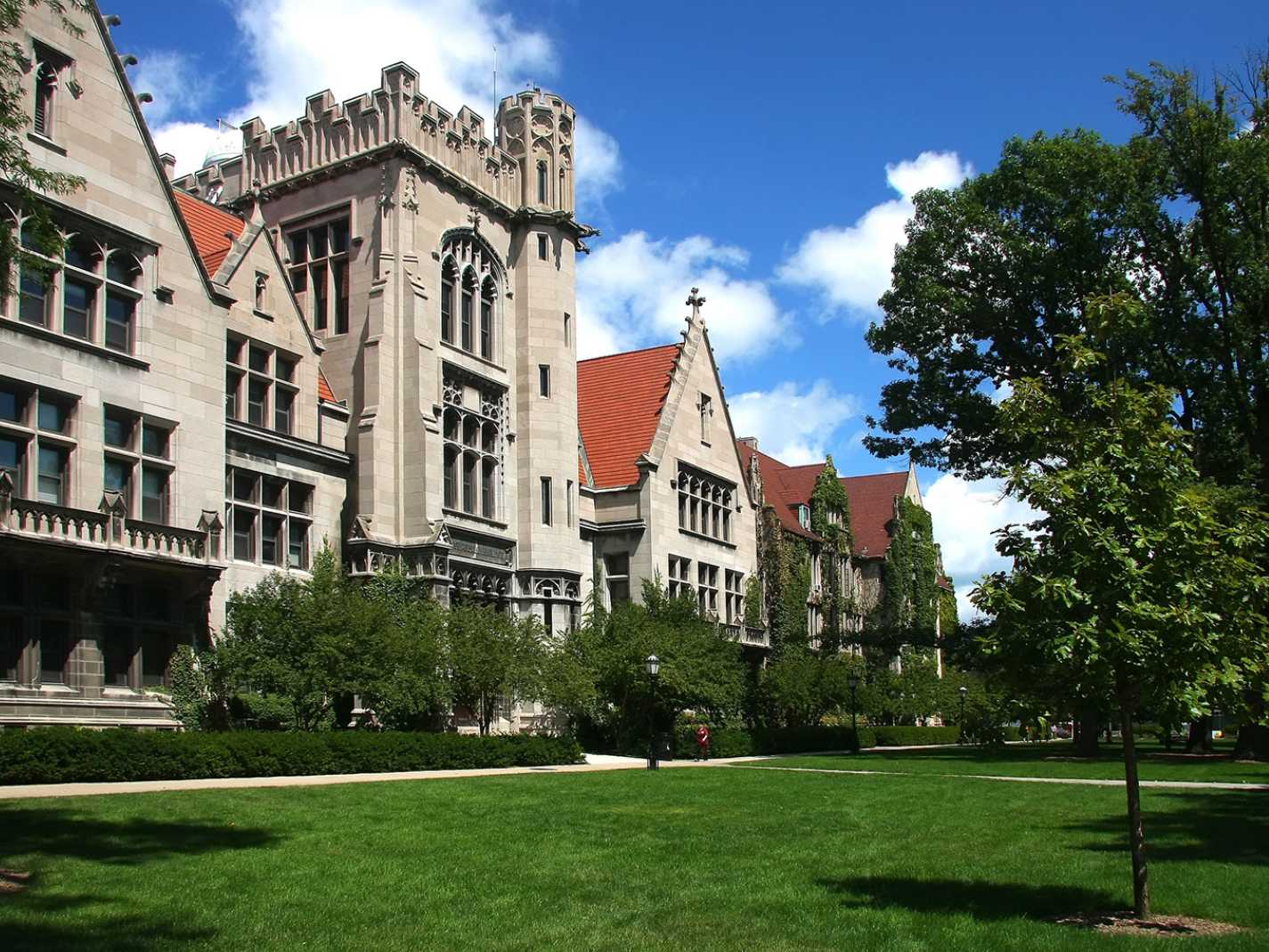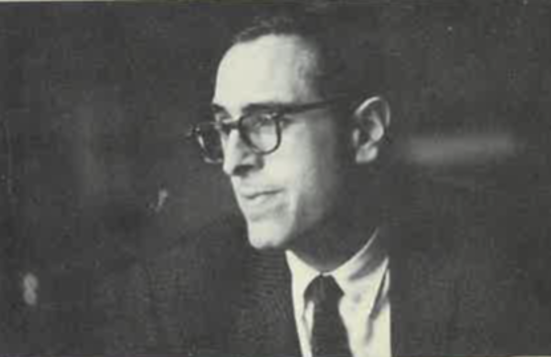
An alumnus remembers a university professor and how he demonstrated the promise of higher education.
With so many problems plaguing higher education, I thought it would be healthy to recognize one example of the often unexpected ways in which the modern university brings people together. A long-time member of the University of Chicago faculty recently passed away, and I have a small personal story to share, if I may, one with larger implications about university life.
We all have strong memories of even those one or two people that influenced our academic lives (and we, in turn, influenced theirs). In this case, it happened in a way that points to how the modern university can be “extended” beyond its traditional borders, and thereby create longer-term learning and collaboration that might transcend some of the strict institutionalism of contemporary academia.
Professor of Economics Emeritus Lester G. Telser was recently remembered by his peers at the University of Chicago, who paid tribute to his distinguished career as a member of its renowned economics faculty. Some of his many former students also contributed. I would like to share briefly my relationship with Professor Telser, which may be somewhat unusual, but which is also perhaps a positive model of how one’s interaction with faculty may continue beyond a formal residence on campus and may provide professional collaboration that is mutually beneficial. This collaboration is in the one domain that arguably defines the central role of a research university: the creation of new knowledge, and its dissemination among a broader constituency that thereby may bring solutions to specific problems. Call it the “Chicago School of Pragmatism.”
After I graduated from UChicago’s Booth School of Business in 1996, I continued my career in the aerospace sector and not long afterward became the CEO of a new industrial joint venture backed by the American Express Corporation, McKinsey & Company, and Brazilian manufacturer Embraer. This certainly drew on the knowledge with which I and my cohort were challenged at the Booth School, back then called the Graduate School of Business, or the “GSB” for short.
As nearly all graduates will likely testify, there is a culture that makes up the informal curriculum at our universities, but it may be the one “class” that has the biggest effect on your intellectual development. It seems to consist largely of developing a healthy skepticism, curiosity, and confidence that difficult problems can be solved through reason.
[Related: “How Stories Replace Facts in Legal Education”]
It was in this spirit of problem-solving that I stumbled upon a footnote in a technical journal that cited Lester Telser and his work in what is called economic core theory. In effect, core theory describes how cooperation can be just as important as competition. It can thereby tell us how well a market is actually functioning, compared to more traditional approaches of economics that merely assume how markets work.
Lester did a fantastic job of linking economic science back to its more modern origins in the late 19th century, complete with a robust analysis of specific industries including railroads, steel, airlines and more. As he stated in Competition, Collusion and Game Theory, “Why is it that economists paid so little attention to the foundation of their discipline? One can find much attention given to questions of monopoly, cartel and competition, but virtually all this literature takes for granted some of the intrinsic properties of markets and competition without properly understanding them.”
As you might expect, this position did not sit well with many of Lester’s modern colleagues. Core theory was often casually dismissed as obsolescent in the face of the increasingly narrow interests of academic economics. But in classic “Chicago” style, Lester asked tough, if inconvenient questions: are we so sure of ourselves that we are leaving out the bigger picture? Are we operating on flawed assumptions? And if economics is thought to be so capable, then why is it so inaccurate both in prediction and in explanation? Lester held the keys to a powerful theory, and it is one that still draws an uncomfortable reaction from mainstream economists.
Lester was also an unusually talented mathematician, and as handy as I think I am in the subject, it would still take me a day or two to work through what he could complete in 30 minutes (that was when Lester was 80 years old and I was about half his age). But this brings me to what a great university education can be: Lester corresponded with me on a regular basis for over a decade, well after I graduated from UChicago. We effectively created an “extended university.” We discussed in detail his main ideas in technical terms, while I closely studied his books, and with that, added the experiences that I brought to bear from my career and the observations about an industry that I could not always explain.
As Lester put it in A Theory of Efficient Cooperation and Competition, “Businessmen complaining of excessive or chaotic competition are sometimes in situations that an impartial observer would describe as an empty core. It is hard for many economists to accept the proposition that competition may be excessive because received theory regards competition as always good, and the more there is, the better.” By an “empty core,” he was referring to the “core of the market” and whether the participants in that market, both companies and customers, were generally satisfied, as well as whether the buying and selling resulted in a stable, fairly reliable process. In short, as economists like to ask, is there an equilibrium? Lester’s approach, however, was different than merely tallying up supply and demand schedules: he asked how things are actually working in the marketplace.
[Related: “Is The Chicago Thinker the New ‘Chicago School’ of Journalism, Politics, and Law?”]
In my case, this surely pointed to the airline industry: despite decades of competition, it is still one of the lowest-rated consumer services of any business sector. As you all can probably attest, flying through an airline is not exactly a pleasant, rewarding, or efficient experience. But why is that? Because the airline industry is really more of a “public utility” that works best with limited competition, along with some intelligent rules, similar to a commuter train.
Lester provided the “proofs” that explain why. But since at least 1978, when the industry was deregulated, it was, and still is, thought by most economists that if we just keep competing, surely things will eventually sort themselves out. Lester showed why this may not be so, and he had the facts and data to back it up. This emphasis on cooperation as an equal partner to competition is surely more relevant than ever, as economies around the world grapple with social, economic, environmental, and technical challenges that are too big for any one company, or government, to solve by itself.
So here is to the memory of Professor Lester Telser (his name is an anagram) and to his generous, committed teaching that he openly extended even to a working but curious businessman. Indeed, in part because of him, I wrote my own book on applied economics and authored over 200 major media essays. These included academic law and policy journal articles that drew on what he taught me, including in corporate and government consulting and in Senate testimony.
Even when our families had dinner together in Hyde Park, I could tell that he regarded my grasp of his advanced theoretical work as more appreciation than comprehension, but I’d like to think that I still honored his professional expertise by giving it my best and by spreading the word about his insights. Perhaps this extended just a little bit the boundary of knowledge resulting from the intellectual cooperation we shared. My latest law, economics, and policy academic article coming out this year will be dedicated to Lester. I think he will regard it with that same slightly cynical, yet still encouraging smile that he always had for my determined if imperfect academic efforts.

Image: Vladislav Gajic, Adobe Stock